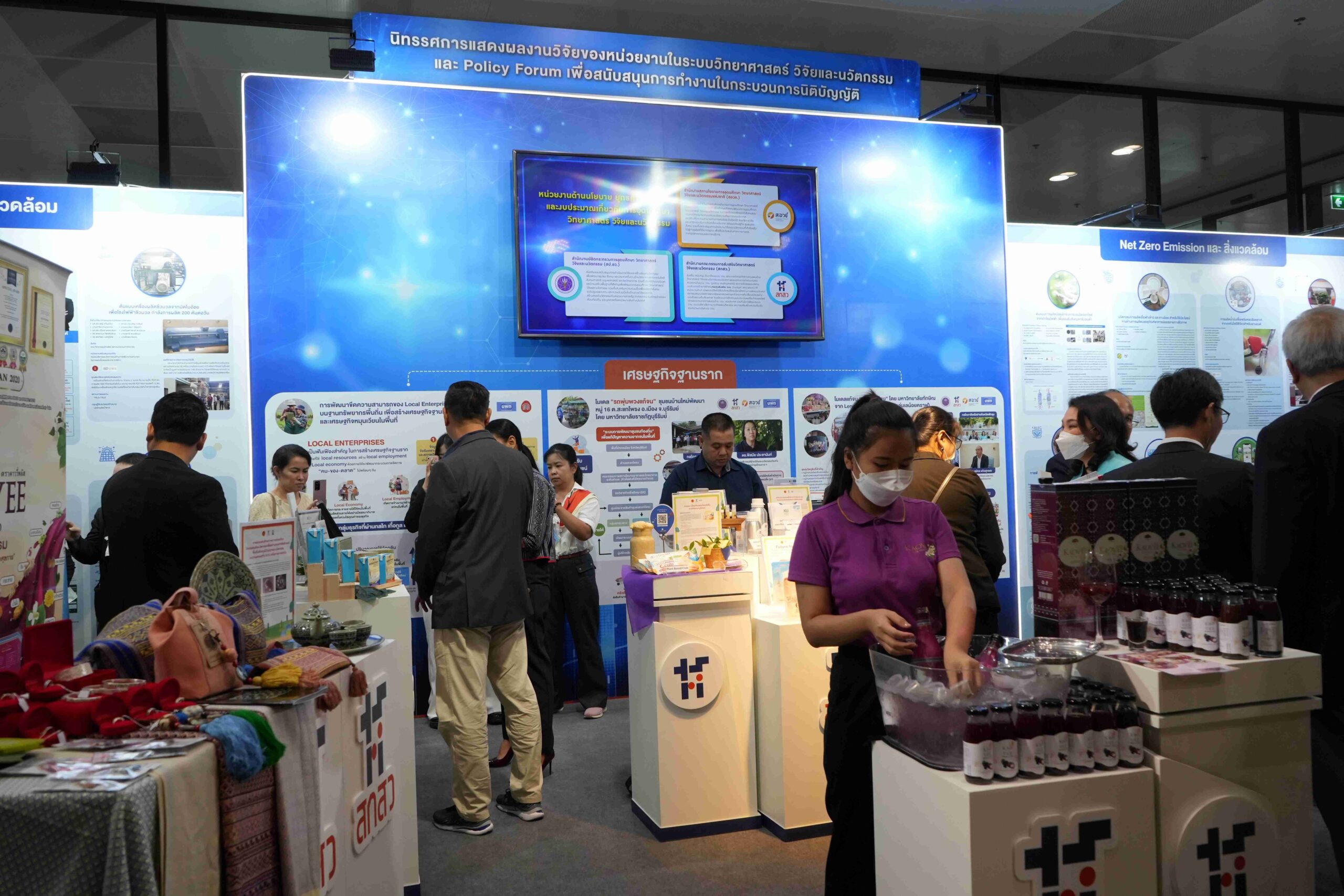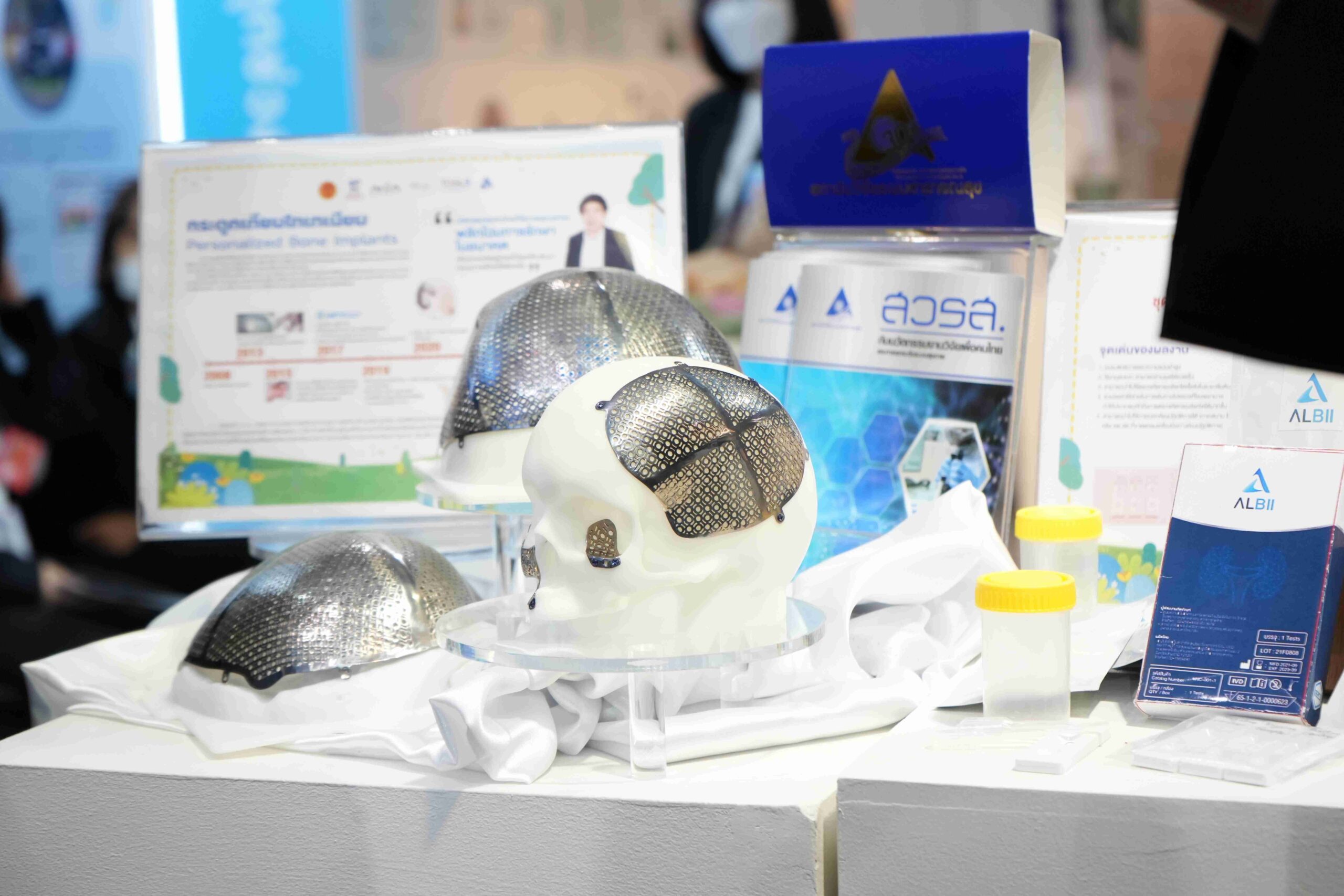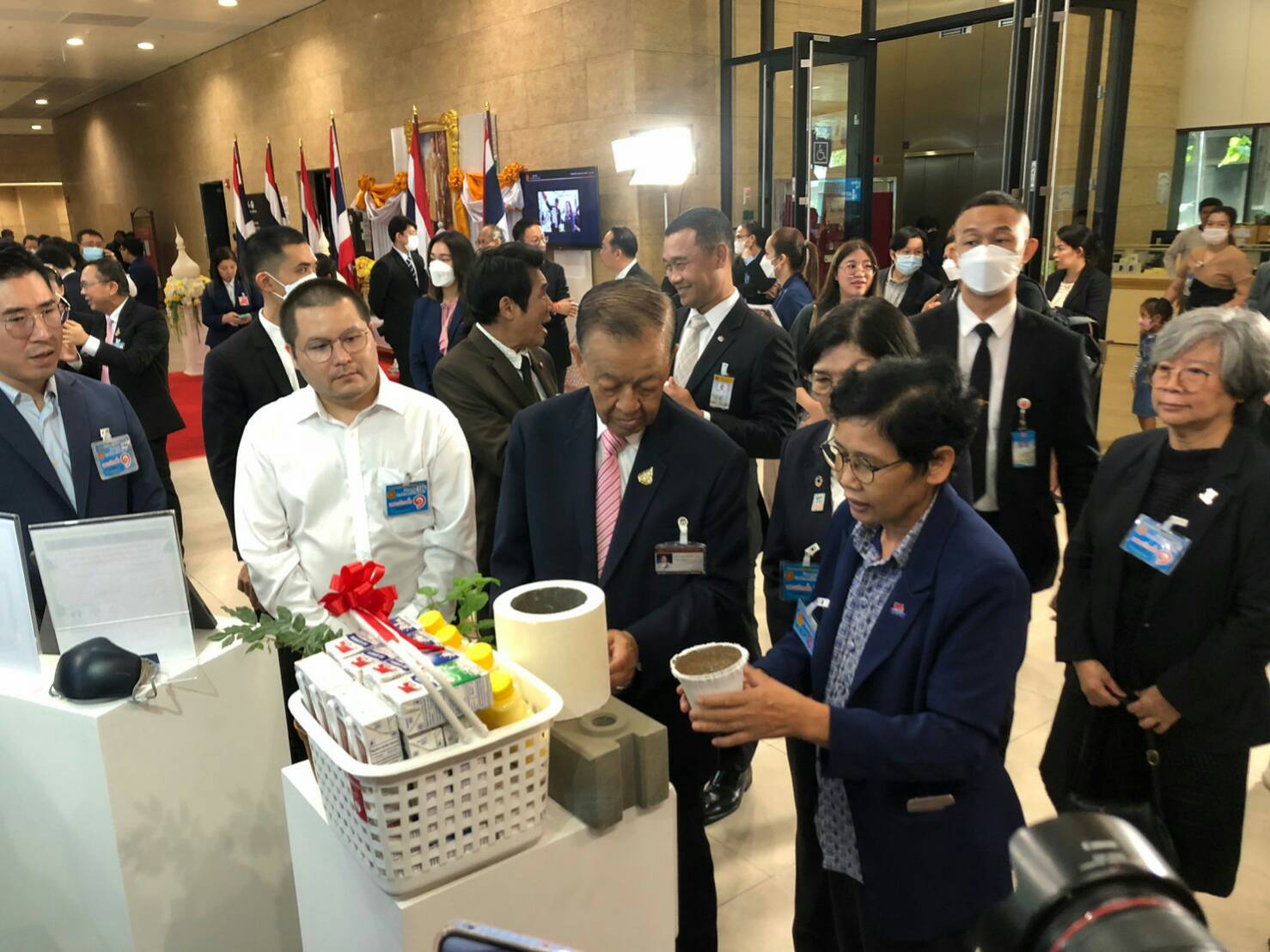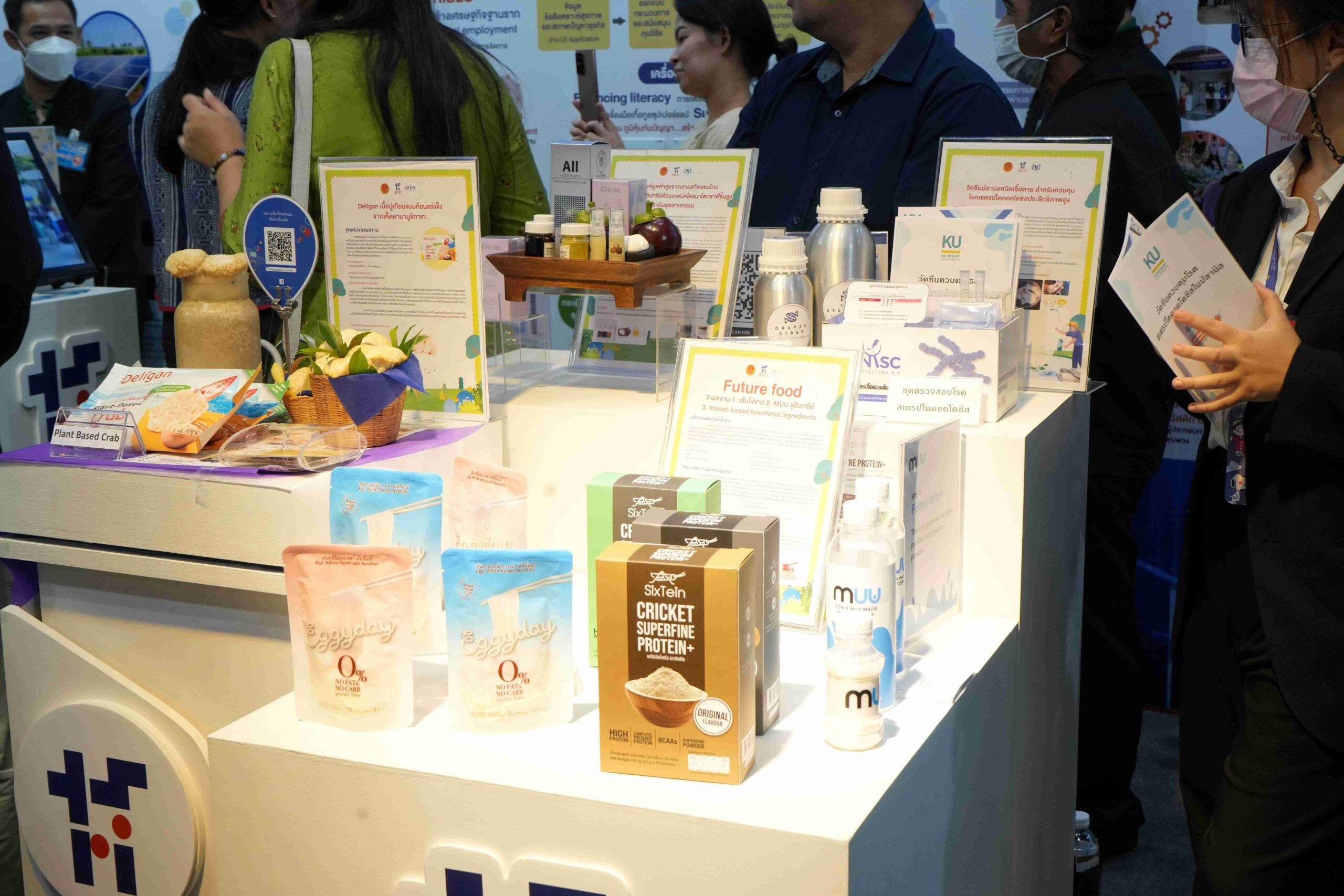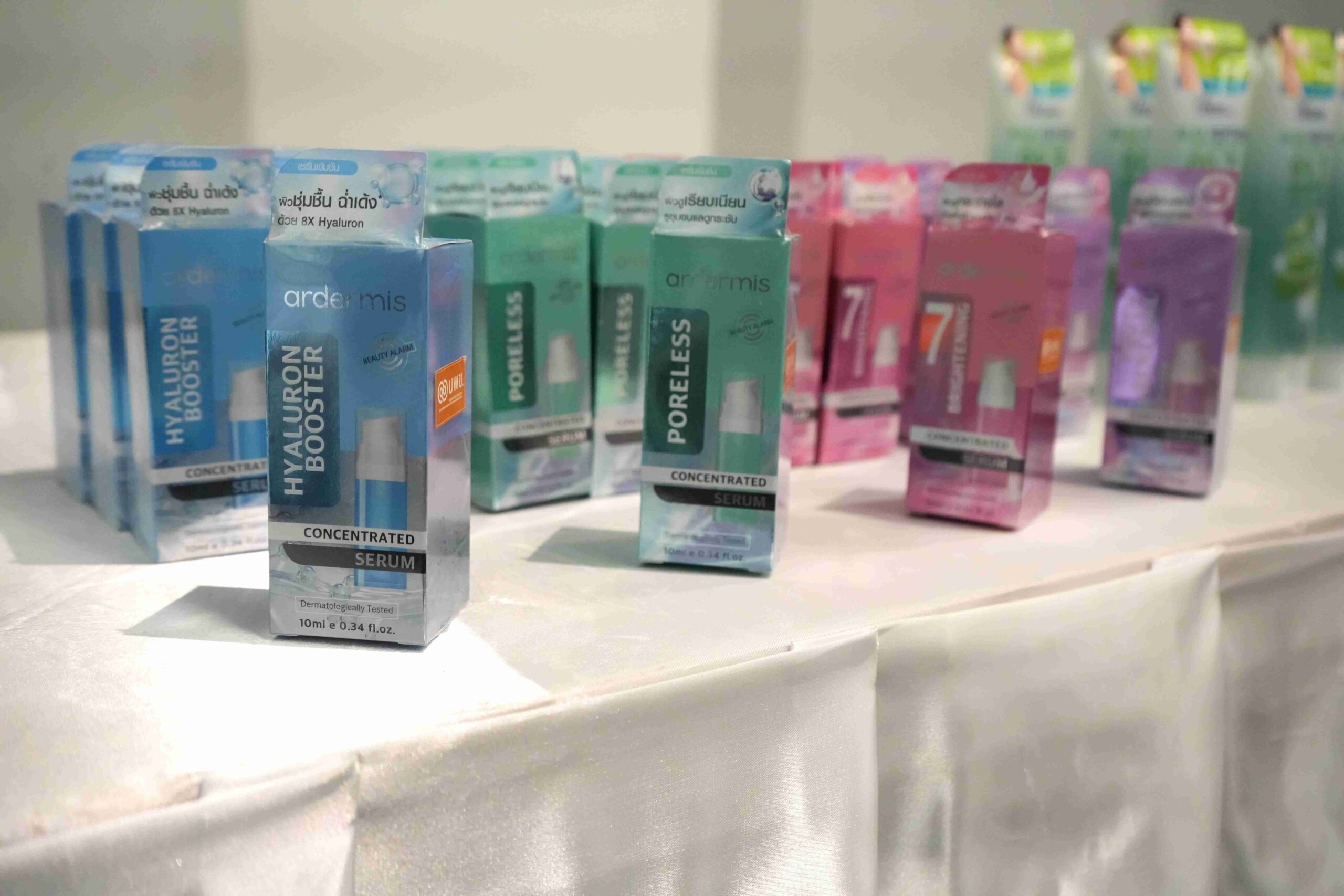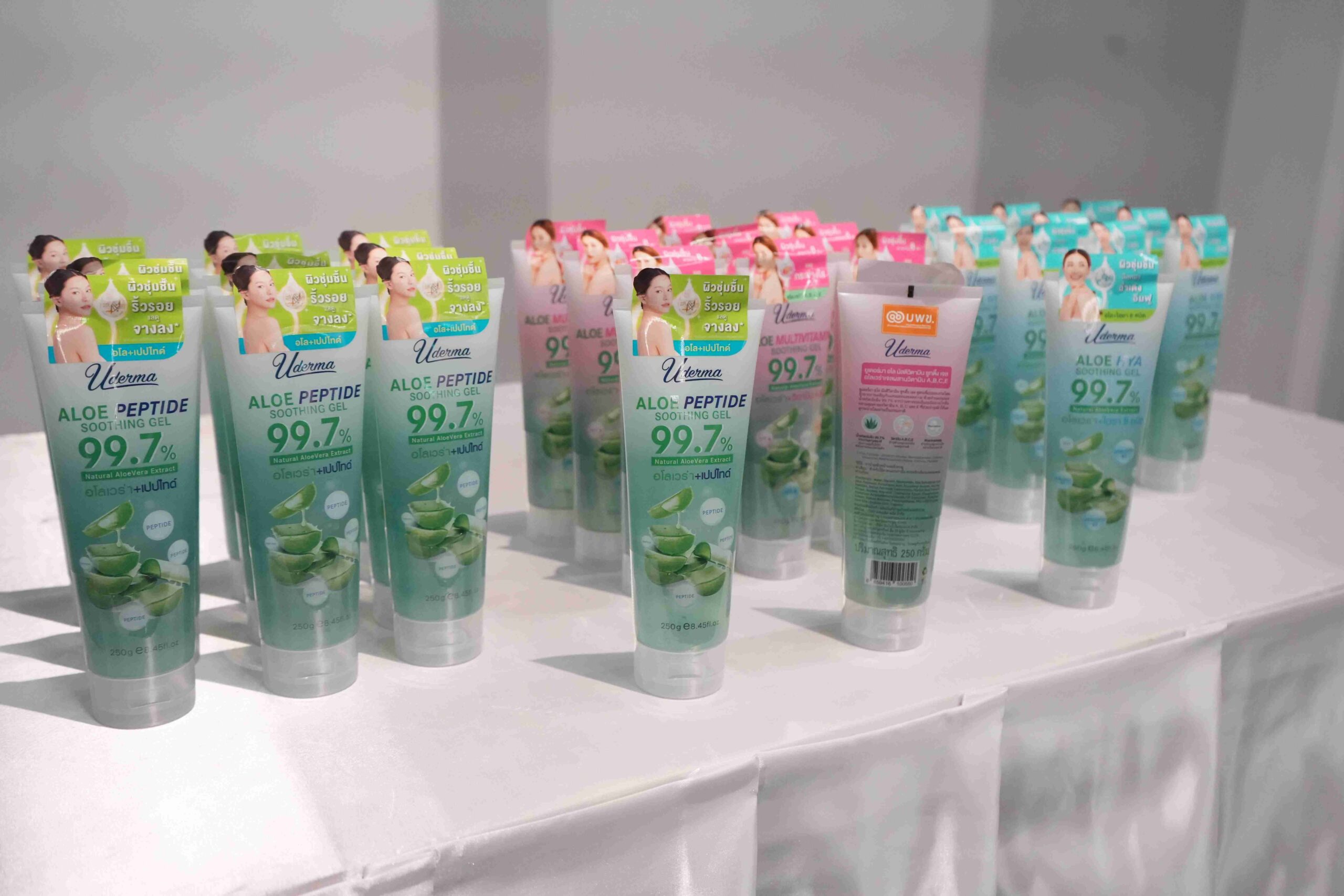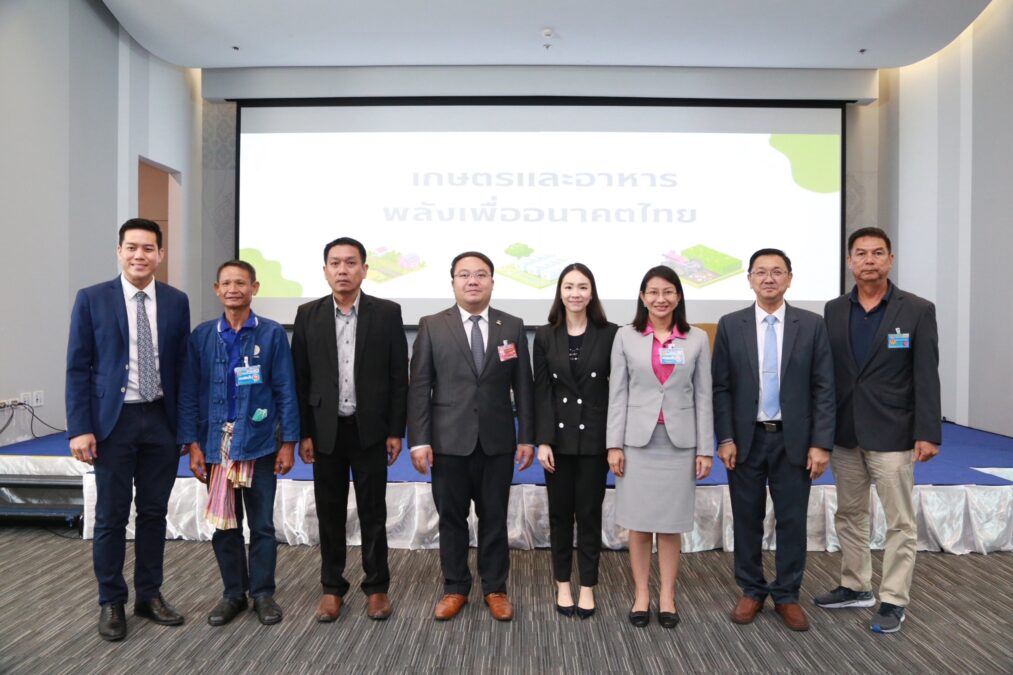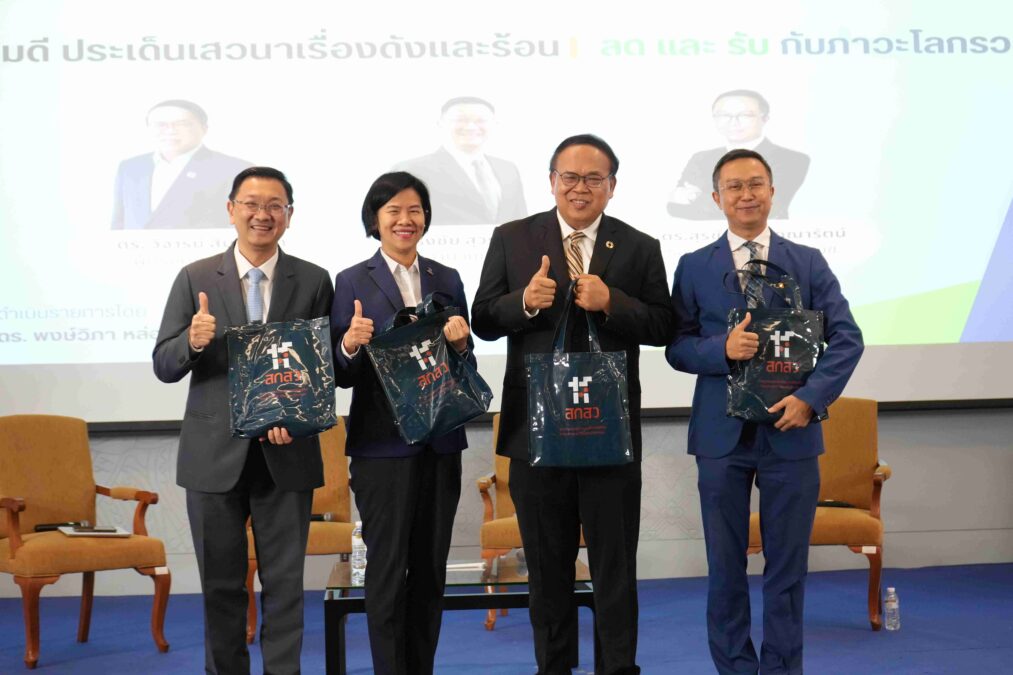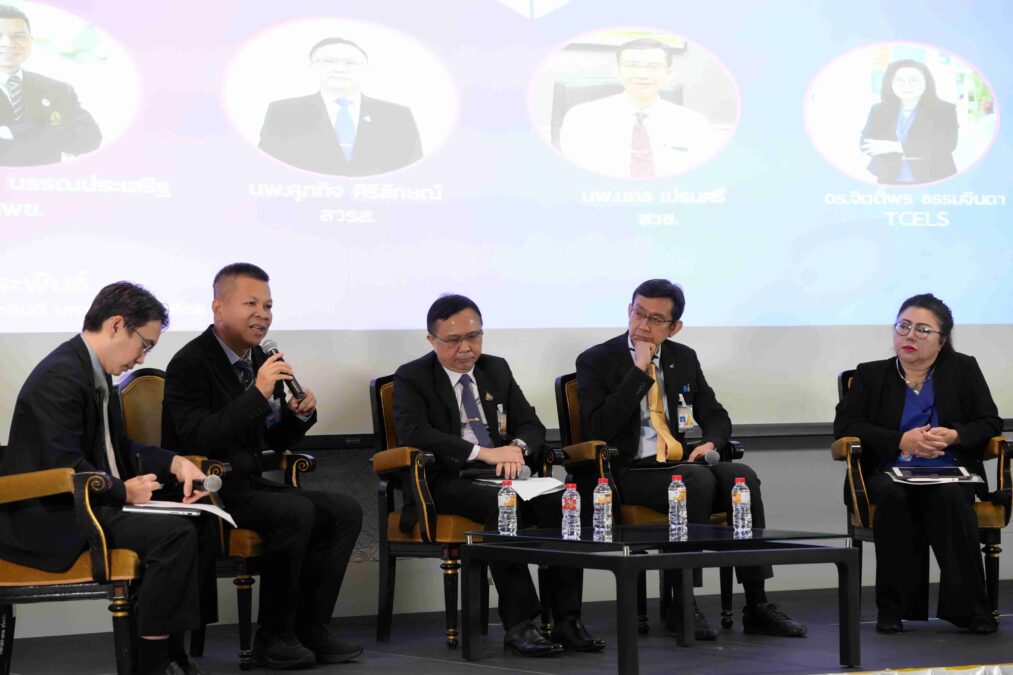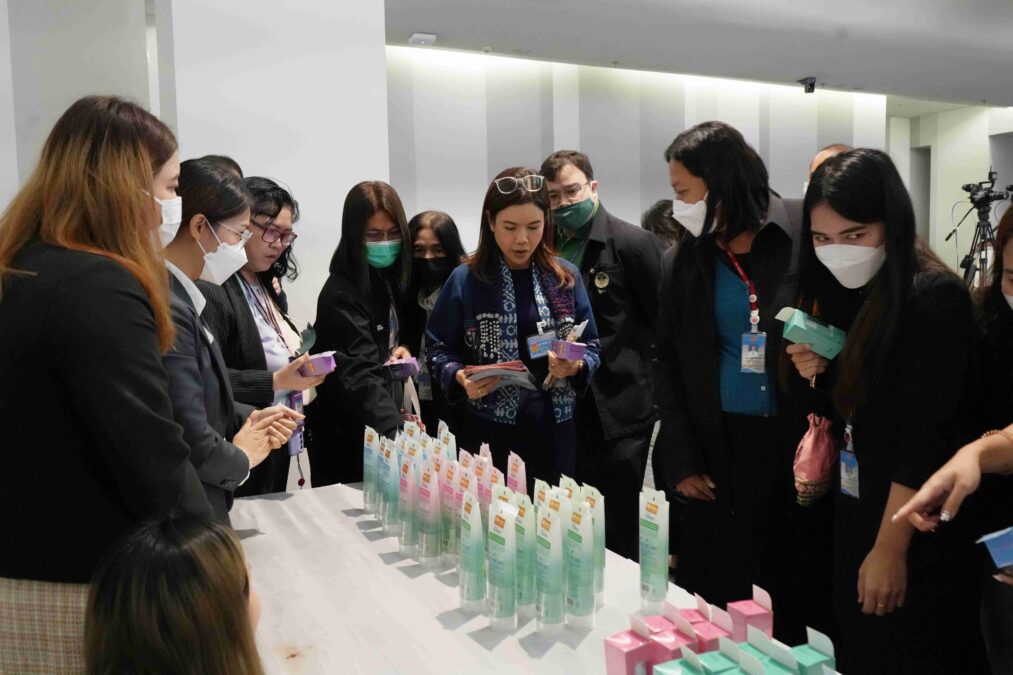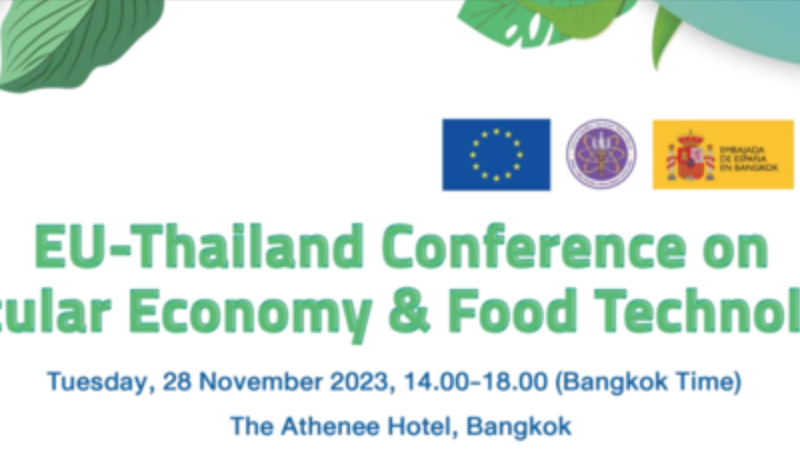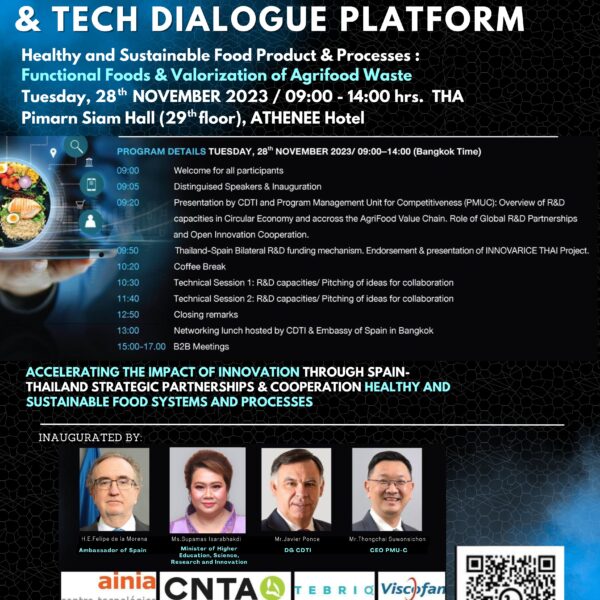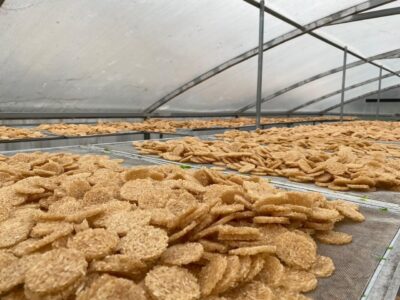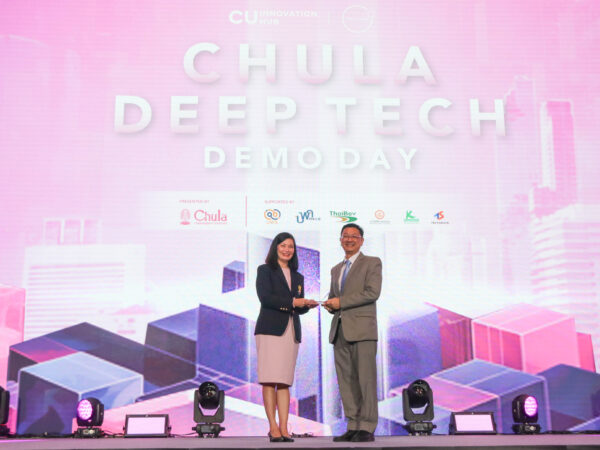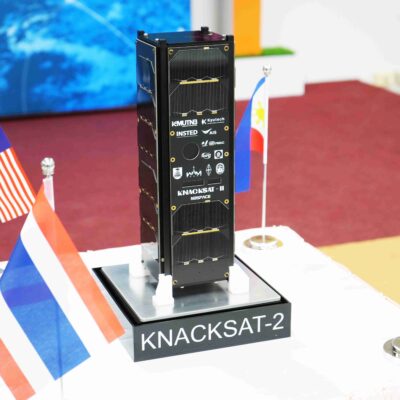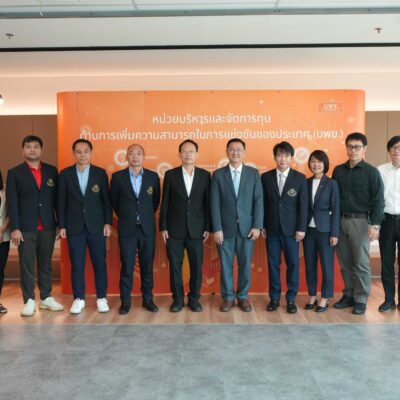The Program Management Unit for Competitiveness (PMUC), led by Assoc. Prof. Dr. Thongchai Suwansichon, the Director, along with the Health and Medicine Subcommittee, the High-value Foods Subcommittee, and the Circular Economy Subcommittee, presented research outcomes at the Research Exhibition within the field of Science, Research, and Innovation (SRI) under the theme, “What Has the Country Achieved from 4 Years of Investment, and What’s the Way Forward?” during the exhibition event showcasing the work of organizations in the Science, Research, and Innovation area, and Policy Forum on October 3rd and 4th, 2566 at the Parliament Building, Khiakkhai.
In this event, PMUC jointly showcased research outcomes from the Health and Medicine Program, the High-Value Food Program, and the Circular Economy Program and participated in discussions to present their work and offer suggestions to support the legislative process, which will lead to various policies that promote the enhancement of the country’s competitiveness. The discussions covered three main topics: “Reduction and Acceptance in a Circular World,” “Agriculture and Food as Thailand’s Future Power” presented by Assoc. Prof. Dr. Thongchai Suwansichon, and “A Health System for Creating the Well-being of Thai People and Innovative Research for Real-world Application to International Standards” presented by Assoc. Prof. Dr. Sansanee Chaiyaroj, the Chairperson of the Committee, along with Assoc. Prof. Dr. Thanom Banprasert, M.D., Deputy Chairman of the Health and Medicine Subcommittee.
Assoc. Prof. Dr. Thongchai stated the PMUC’s goal is to elevate the country’s production and export of Functional Ingredients, Functional Food, Novel Food, with an aim to create high economic value. Thailand aims to be a global leader in the production and export by utilizing research outcomes, knowledge, technology, and innovation. PMUC provides funding to support Functional Ingredients, Functional Food, Novel Food, and Premium Pet Food from Thai agricultural products. They also support infrastructure development, establish pilot plants, and develop knowledge and technology for the production of high-value extracts for nine universities across the country to serve as academic and product testing centers for scaling up to the private sector. Since its establishment in the fiscal year 2020-2023, PMUC has supported more than 268 projects in high-value agriculture and food with a budget of over 1,082 million Baht, with private sector participation of 96.4 million Baht.
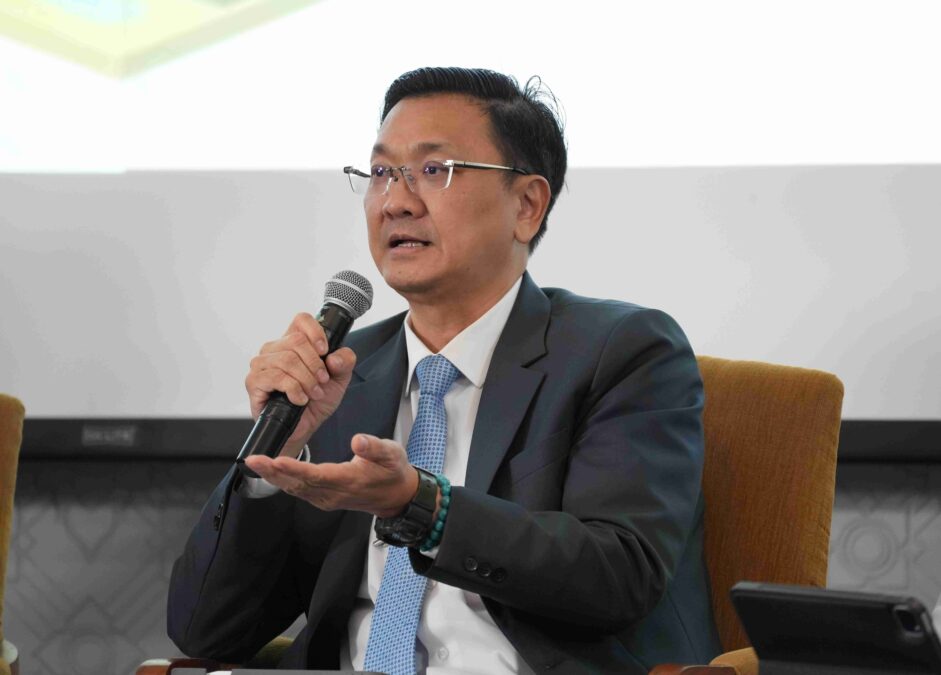
“What PMUC considers crucial is driving research that can be commercially viable. This is achieved through collaboration between the government, academia, and the private sector. The projects supported by PMUC are those initiated by the private sector to address specific pain points for entrepreneurs. PMUC collaborates with various parties, including the Ministry of Agriculture, academic institutions, and other relevant agencies, to facilitate cooperation and push for policy development, standards for product certification, services, and new innovations resulting from research and development to meet international quality standards and gain global recognition. This includes advocating for adjustments in certain laws that will facilitate Thai products and services entering international markets, providing Thai entrepreneurs with greater competitiveness.
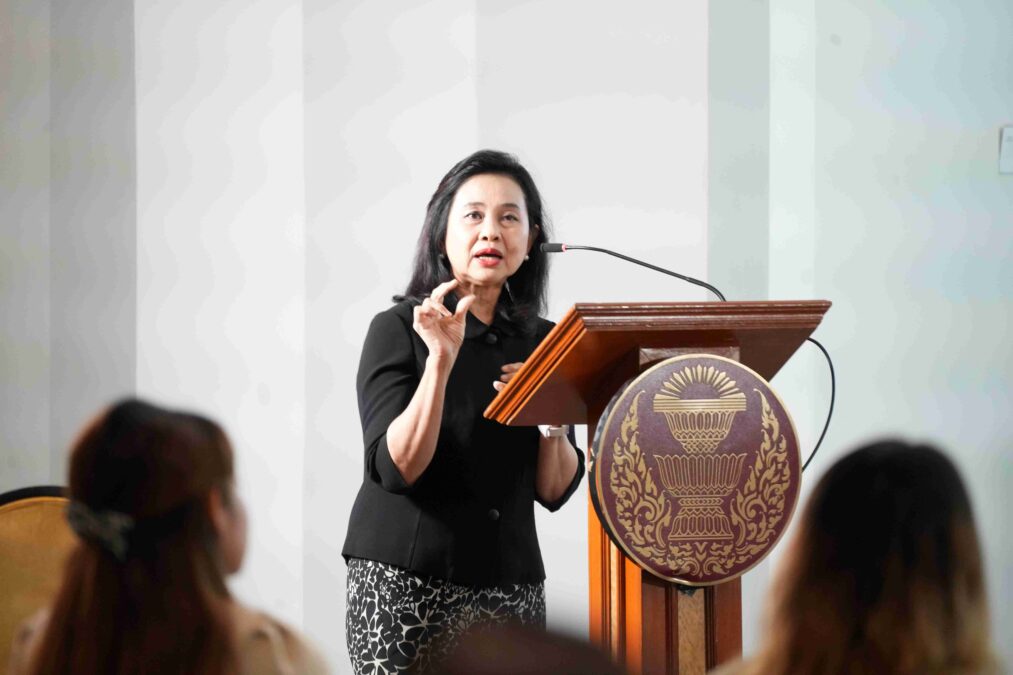
Prof. Dr. Sansanee discussed the development of biopharmaceuticals under the support of the PMUC, that the research funding will focus on health and medical research, emphasizing the development of biopharmaceuticals, industrial applications, and in-depth research, not just for publication but also for commercial purposes. The PMUC coordinates collaboration between public and private organizations, research institutions, universities, and private sector entities, both domestically and internationally. Past achievements include the biopharmaceutical project “Pegylated-Filgrastim” (commercially known as Lutholaz), which is used for treating cancer and low white blood cell count. This new biosimilar product utilizes deep technology in its production, enabling patients to take it orally rather than through injections, reducing pain and the frequency of medication. This biopharmaceutical product is primarily composed of proteins, unlike conventional chemical drugs. It works similarly to a hormone that stimulates the bone marrow to produce white blood cells, which can combat infections. This medication is useful for individuals with severe infections or cancer, as cancer treatment often weakens bone marrow function, making patients susceptible to infections.
Prof. Dr. Sansanee further explained that the PMUC’s funding differs from national research funding and government budgets. The PMUC’s funding is aimed at regulatory compliance and Thai FDA approval, requiring collaboration with the private sector due to the substantial investments needed for research, clinical trials, and various marketing efforts to meet international standards.
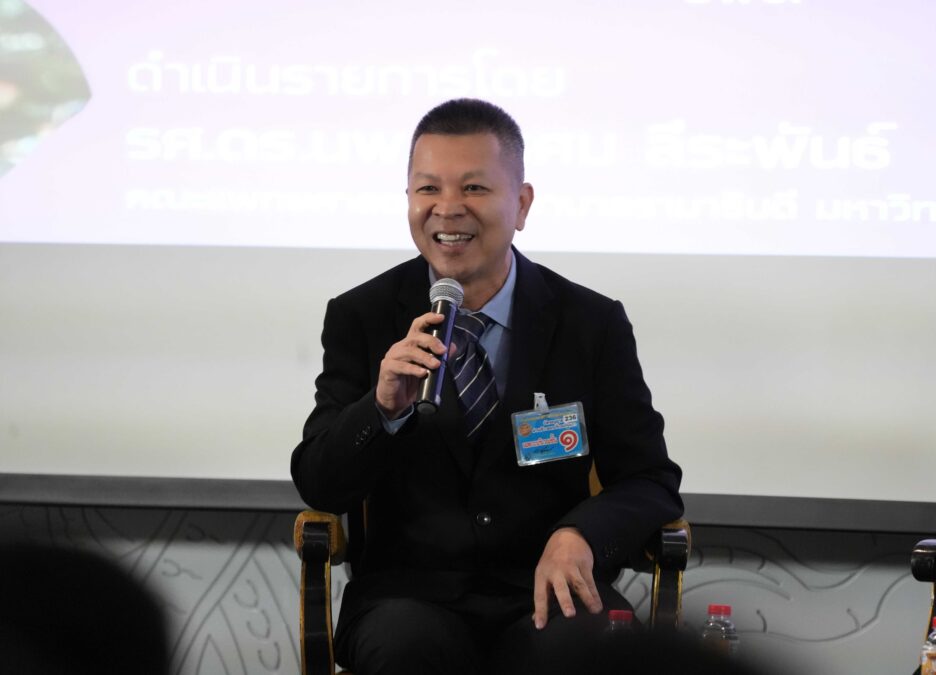
Assoc. Prof. Dr. Thanom emphasized Thailand’s commitment to medical services and its strength in healthcare. However, there’s a need to strengthen the medical product development sector due to high importation costs. Therefore, the PMUC plays a central role in supporting and promoting research and development of high-quality medical products that meet international standards and are marketable. In the past, medical products were often used without proper testing and certification, which is why the PMUC now controls and supports the entire process, from laboratory development to certification, to ensure that they meet international standards.
Moreover, the PMUC suggested that the government should consider providing continuous support for projects, such as those related to the environment, biopharmaceutical development, and vaccine development, as well as building expertise in various industries. This long-term perspective may not always yield direct financial returns, but it contributes to the country’s resource stability, public health, and the quality of the workforce, which is vital for driving the country’s overall economy, competitiveness, and negotiation power in international trade.

